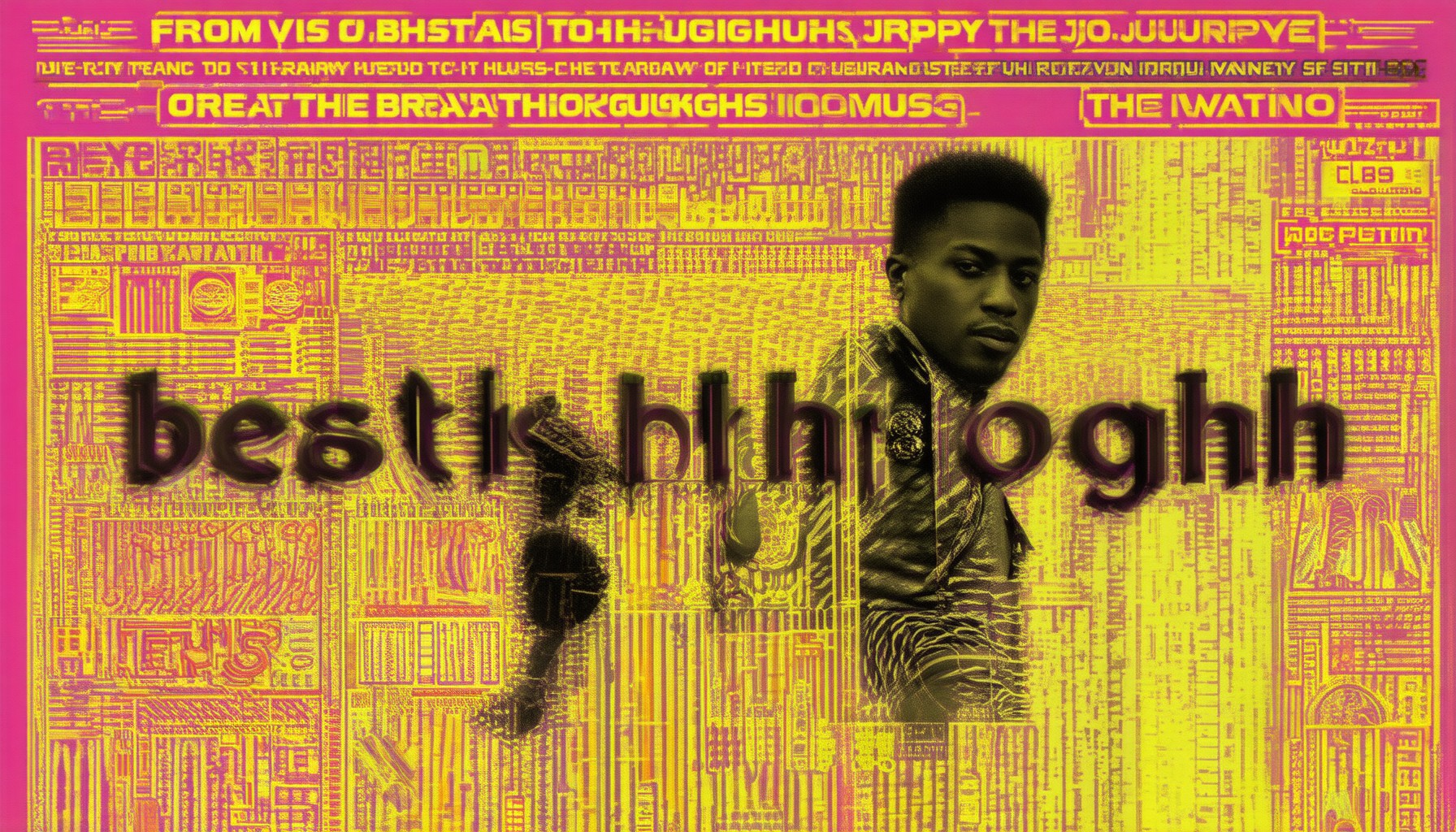Throughout history, hip-hop music has emerged as one of the most dynamic and influential forms of art, evolving from its roots in African American culture to becoming a global phenomenon. From the foundational beats and rhymes of its origins to the cutting-edge production techniques of today, hip-hop music innovation has consistently pushed boundaries and redefined expectations. This journey of transformation is marked by groundbreaking technological advancements, visionary artists, and a cultural resonance that transcends borders. As we delve into the fascinating story of hip-hop’s evolution, we explore how it has not only shaped music but also influenced society, fostering empowerment, cross-cultural dialogue, and social change. Understanding the innovations that have driven hip-hop’s success and the visionaries behind them provides insight into its enduring appeal and its continued role in shaping contemporary culture.

How Has Hip-Hop Music Evolved Over Time?
The evolution of hip-hop music is a dynamic journey marked by significant shifts in sound, style, and cultural impact. From its roots in African American communities to its global influence today, hip-hop has consistently redefined itself while staying true to its core essence.
The Origins: The Birth of Hip-Hop
Hip-hop emerged in the late 1960s and early 1970s, primarily in New York City. Its foundation was built on block parties, DJ Kool Herc’s innovative scratching, and the MCs who told stories and kept the crowd engaged. Early hip-hop was a communal art form, blending elements of jazz, funk, and street culture.
The Golden Age: The Rise of the Culture
The 1980s marked the golden age of hip-hop, with artists like Afrika Bambaataa, Kurtis Blow, and The Notorious B.I.G. shaping the genre. This era saw the rise of East Coast vs. West Coast rivalries, the emergence of conscious rap, and the fusion of hip-hop with other genres like rock and pop.
Breaking Boundaries: The 1990s and Beyond
In the 1990s, hip-hop became mainstream, with artists like Tupac, Biggie Smalls, and Nas pushing boundaries. The decade saw the blending of hip-hop with Latin music, leading to the rise of Latin hip-hop. The turn of the century brought the rise of Southern hip-hop, led by OutKast and Lil Jon, which introduced a raw, gritty sound.
Digital Revolution: The 2000s and Today
The 2000s brought the digital revolution, with the rise of streaming platforms and mixtape culture. Artists like Kanye West, Travis Scott, and Kendrick Lamar have redefined hip-hop through experimental beats, storytelling, and social consciousness. Modern hip-hop also embraces international influences, with artists from Africa, Europe, and Asia making significant waves.
Cultural Impact and Legacy
Hip-hop’s evolution reflects broader societal changes, from civil rights to technology. It has influenced fashion, language, and even politics. Its adaptability has allowed it to stay relevant, embracing new tools like AI to create music while maintaining its authenticity and connection to its roots.
Hip-hop continues to evolve, pushing boundaries and inspiring new generations. Its legacy as a powerful cultural force ensures that it will remain a driving force in music and society for years to come.
Technological Advancements in Hip-Hop
Hip-hop culture has always been at the forefront of technological innovation, blending music, art, and storytelling to create a unique auditory experience. Over the decades, various tools and platforms have emerged, revolutionizing how music is produced, shared, and consumed. Here are some notable technological advancements that have shaped hip-hop:
-
The Turntable
The turntable, invented in 1877, became a cornerstone of hip-hop culture. DJs began using it to spin vinyl records, creating loops and beats on-the-fly. This innovation allowed for live scratch sessions, a defining feature of hip-hop DJing.
-
The Synthesizer
Introduced in the 1960s, the synthesizer opened up endless possibilities for sound design. Artists like Kanye West and Daft Punk have used it to create futuristic basslines, arpeggios, and melodies that define modern hip-hop production.
-
The Drum Machine
The drum machine transformed beatmaking from a manual process to a more efficient one. Artists like Afrika Bambaataa used early models to create intricate rhythms, laying the foundation for complex hip-hop beats that dominated the 80s and 90s.
-
The Sampler
Samplers allowed producers to loop and manipulate audio snippets, enabling the creation of iconic hip-hop tracks. The SP-12, released in 1980, became a staple in studios, helping shape the raw, gritty sound of early rap music.
-
Beat-Making Software
Modern producers rely on software like Ableton Live and Logic Pro X to create and mix tracks. These tools offer extensive sampling libraries, virtual instruments, and automation capabilities, streamlining the production process.
-
MIDI Controllers
MIDI controllers have become essential tools for live performances. They allow artists to play instruments and trigger samples or effects in real-time, enhancing the dynamic nature of hip-hop shows.
-
Cloud-Based DAWs
With the rise of internet connectivity, cloud-based DAWs like FL Studio Cloud have enabled producers to collaborate remotely and access tools from anywhere. This has democratized music production, allowing more people to participate in hip-hop creation.
Hip-hop continues to evolve with new technologies, pushing boundaries and redefining the genre. From the analog tools of the past to the digital innovations of today, these advancements have kept hip-hop fresh and innovative, ensuring its legacy as a global cultural force.
[Link to Abstract Hip Hop](https://abstracthiphop.com/)

The Key Innovators of Hip-Hop
Hip-hop culture has been shaped by numerous visionary artists and DJs who pioneered its evolution. Here are some of the most influential innovators:
- DJ Kool Herc – Known as the father of hip-hop, he popularized the “Herc Mix” and introduced the concept of breakbeats, laying the groundwork for modern hip-hop production.
- Grand Wizzard Theodore – A founding member of the Universal Zulu Nation, he contributed to early scratch-funk records and was instrumental in the development of turntable techniques.
- Grandmaster Flash – Renowned for his technical prowess, he was a key figure in the Bronx’s hip-hop scene, influencing future generations with his innovative DJing and crew work.
- Jazzy Jay – Known for his work with Grandmaster Flash and The Fab Five, he helped establish the scratch technique and contributed to foundational tracks like “Rhythm to the Beat.”
- Afrika Bambaataa – A pivotal figure in the Loft parties, he blended genres like electro-funk and funk to create a distinct sound that became synonymous with early hip-hop culture.
- Kurtis Blow – One of the earliest MCs, he combined street storytelling with disco beats, helping to define the role of the emcee in hip-hop.
- The Notorious B.I.G. – While primarily known as a rapper, his storytelling skills and influence on narrative in rap music set a high standard for future artists.
- DJ Breakout & DJ Spence – Pioneers of the Bronx block party scene, their contributions to live DJing were essential to the early days of hip-hop.
- DJ Hollywood & DJ Red Alert – Active in the South Bronx, they were instrumental in spreading hip-hop beyond New York City.
- The Latin Disciples & The Counts – Their tracks were heavily sampled, contributing significantly to the development of hip-hop beats.
These trailblazers didn’t just create music; they crafted a culture, defining the boundaries of hip-hop and inspiring countless artists to come. Their innovations continue to resonate in every corner of the genre today.

How Does Hip-Hop Influence Society Today?
Hip-hop continues to play a pivotal role in shaping modern culture, influencing various aspects of society from music and fashion to politics and social justice. Its impact extends far beyond entertainment, reflecting the struggles, triumphs, and aspirations of people from all walks of life.
- Cultural Expression :
Hip-hop serves as a powerful medium for self-expression, allowing individuals to articulate their experiences through music, poetry, and visual art. Artists often use their platforms to address societal issues, such as systemic inequality, mental health, and economic disparities, resonating with audiences worldwide. - Fashion and Style :
The streetwear inspired by hip-hop has become a global phenomenon, with brands and styles originating from urban neighborhoods gaining mainstream attention. This cultural shift has redefined fashion trends and created opportunities for entrepreneurs and designers. - Political Activism :
Hip-hop has historically been a tool for political advocacy, providing a voice to marginalized communities. Artists like Kendrick Lamar and J. Cole have used their music to highlight racial injustice and societal issues, sparking conversations and mobilizing movements. - Social Justice Movements :
The genre has been instrumental in amplifying the voices of those advocating for change. From the Black Lives Matter movement to climate change protests, hip-hop tracks and lyrics have served as anthems for activists and organizers worldwide. - Global Influence :
Hip-hop has transcended borders, influencing music genres in countries like Brazil, Japan, and South Africa. Its cultural significance is evident in how it has been adopted and adapted globally, fostering cross-cultural understanding and exchange. - Economic Power :
The hip-hop industry generates billions of dollars annually, supporting jobs in music production, marketing, and live performances. It has also empowered independent artists and producers, demonstrating the potential of self-made successes. - Technology and Innovation :
Hip-hop has driven innovation in technology, particularly in audio equipment and digital media. Producers and DJs have pushed boundaries in sound design, leading to advancements in music production tools and streaming platforms. - Education and Youth Empowerment :
Many hip-hop programs and initiatives focus on education and mentorship, aiming to inspire young people and provide them with resources to succeed. This includes music workshops, leadership training, and community outreach programs. - Business and Entrepreneurship :
The hip-hop ecosystem has fostered successful entrepreneurs and businesses, from record labels to clothing brands. Artists and moguls like Diddy and Russell Westbrook have built empires, demonstrating the business acumen of the culture. - Artistic Freedom :
Hip-hop has always celebrated artistic freedom, allowing creators to experiment with new sounds and styles. This freedom has led to the evolution of subgenres like trap, lo-fi, and cloud rap, enriching the musical landscape. - Community Building :
Local hip-hop scenes often function as hubs for community building, providing platforms for dialogue and collaboration. They foster a sense of belonging and unity among participants, whether through cypher battles or block parties. - Digital Presence :
The rise of streaming platforms has amplified hip-hop’s reach, making it accessible to millions globally. Artists use social media to connect with fans, engage in real-time conversations, and promote their work, further solidifying its cultural impact. - Philanthropy :
Many hip-hop artists and influencers are active in philanthropy, supporting causes ranging from education to disaster relief. Their donations and advocacy efforts have raised awareness and generated significant funding for charitable organizations. - Language and Identity :
Hip-hop has influenced slang and language usage, shaping internet culture and social media interactions. It has also become a symbol of identity, with many people using hip-hop references to express themselves and connect with others. - Legacy and Future :
As hip-hop continues to evolve, its influence shows no signs of waning. New generations are adopting the genre, carrying its spirit forward, and expanding its boundaries. The genre’s adaptability ensures its relevance in an ever-changing world.
From its roots in the Bronx to its global dominance, hip-hop has become a defining force in contemporary society. Its ability to reflect and shape cultural trends makes it a vital part of our collective consciousness, driving progress and inspiring change.
Positive Effects of Hip-Hop Music
Hip-hop music has a profound impact on various aspects of society and individual well-being. Beyond its cultural significance, it has been shown to have numerous positive effects on mental health, education, and societal progress. Here are some of the key benefits:
- Cultural Preservation and Storytelling: Hip-hop serves as a medium for preserving and celebrating African American culture, history, and experiences. It provides a platform for artists to share stories, struggles, and triumphs, fostering a sense of identity and pride among listeners.
- Economic Impact: The hip-hop industry is a multi-billion dollar global business, supporting jobs in music production, marketing, distribution, and more. It has also created pathways for entrepreneurs and small businesses within the music ecosystem.
- Social Change: Many hip-hop songs address social issues such as systemic racism, poverty, and inequality. Artists use their platforms to raise awareness and inspire movements for justice and equality, often resonating with millions of people worldwide.
- Education and Critical Thinking: Hip-hop can be a powerful educational tool, particularly in urban areas. It encourages listeners to think critically about their surroundings, challenges, and possible solutions, often making complex topics more relatable and accessible.
- Community Building: Hip-hop culture fosters a sense of belonging and unity among fans. It brings people together through shared experiences, music, and values, creating stronger communities and reducing feelings of isolation.
- Artistic Expression: The genre allows for creative freedom, enabling artists to experiment with different sounds, styles, and messages. This diversity keeps the art form fresh and evolving, continually pushing boundaries and inspiring new generations.
- Local Economy Boost: In many cities, hip-hop events, concerts, and festivals contribute significantly to the local economy by attracting tourists, generating revenue for businesses, and creating jobs.
By embracing hip-hop music, individuals and communities can experience these positive effects firsthand, contributing to a richer, more connected, and empowered society.

Why is Hip-Hop So Influential?
Hip-hop is influential due to its rich cultural heritage, innovative music, and global reach. Originating in the Bronx during the late 1960s, hip-hop emerged as a means of expression for African American youth, blending music, DJing, and street culture. Its foundation laid the groundwork for a unique cultural phenomenon that would resonate worldwide.
The music itself is a cornerstone of hip-hop’s influence. With its distinctive beats, rhymes, and storytelling, hip-hop offers a medium for artists to address social issues, share personal experiences, and connect with audiences. Pioneers like DJ Kool Herc and Grandmaster Flash introduced groundbreaking techniques such as breakdancing and scratching, which became synonymous with the genre.
Hip-hop’s impact extends beyond music, shaping global culture. It influences fashion, language, and lifestyle, creating a recognizable aesthetic that transcends borders. The genre’s influence is evident in film, television, and advertising, where it has become a universal language of youth culture.
Technological advancements have further amplified hip-hop’s reach. The rise of digital platforms has enabled artists to connect with global audiences, while social media has democratized stardom, allowing unsigned artists to gain massive followings. This shift has redefined how music is consumed and shared, making hip-hop a driving force behind modern digital culture.
Commercial success has also played a crucial role in hip-hop’s influence. Many artists have achieved extraordinary wealth, leveraging their platforms to invest in underserved communities, thereby fostering economic development in urban areas. This financial power has allowed for significant cultural contributions, from philanthropy to the revitalization of local businesses.
Moreover, hip-hop serves as a reflection of societal changes. It frequently addresses issues of inequality, systemic racism, and economic struggle, offering a lens through which to view broader societal challenges. Artists use their platforms to advocate for social justice, inspiring movements and sparking important conversations.
Today, hip-hop is a vital part of education systems, appearing in school curricula to teach students about its historical significance and cultural impact. Its influence spans across generations, bridging gaps between different demographics and fostering a sense of unity through shared experiences and values.
In conclusion, hip-hop’s influence is profound and multifaceted. It is not merely entertainment but a cultural force that shapes identities, drives innovation, and connects people across the globe. From its roots in the Bronx to its global dominance, hip-hop continues to redefine culture and inspire future generations.





0 Comments